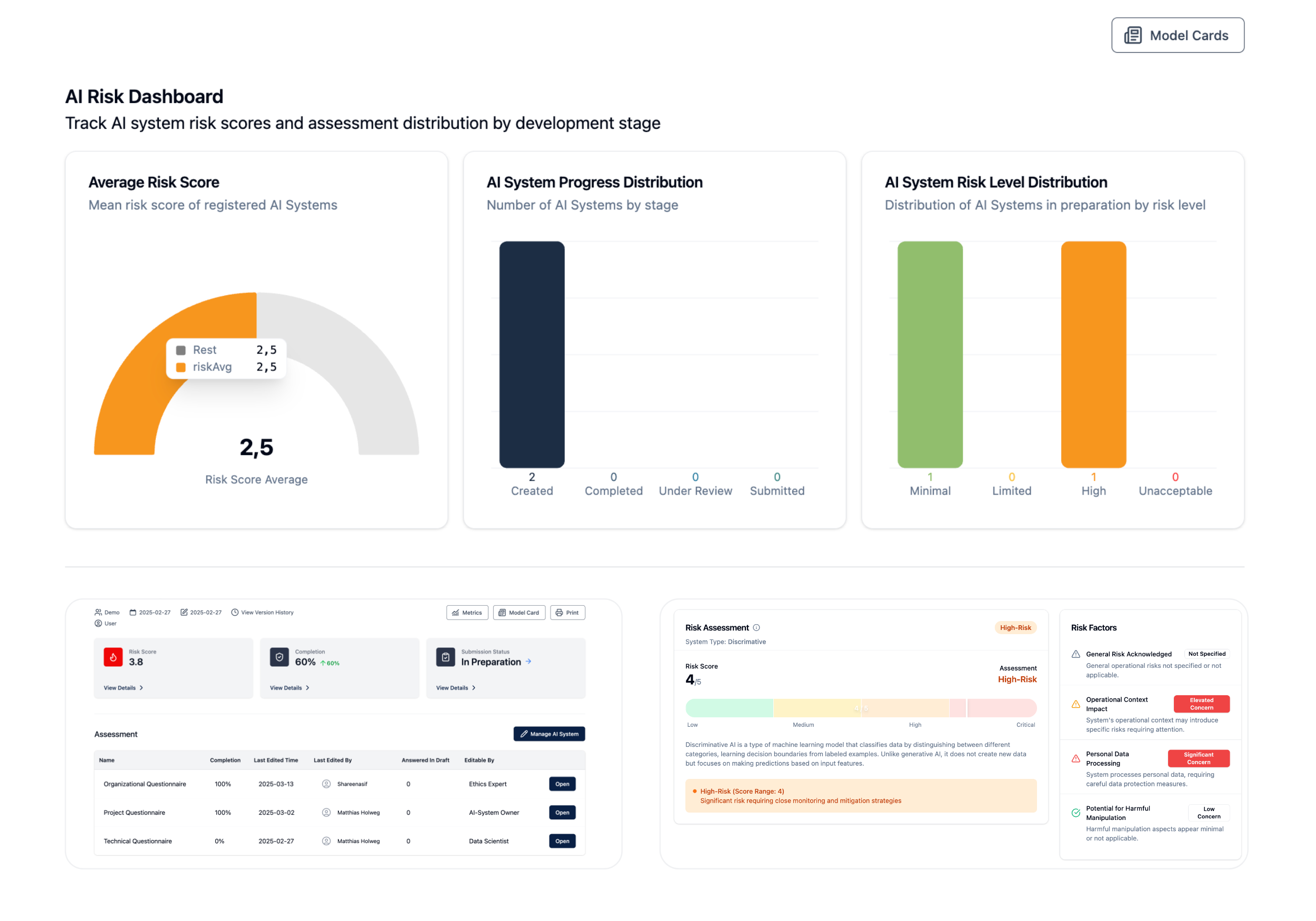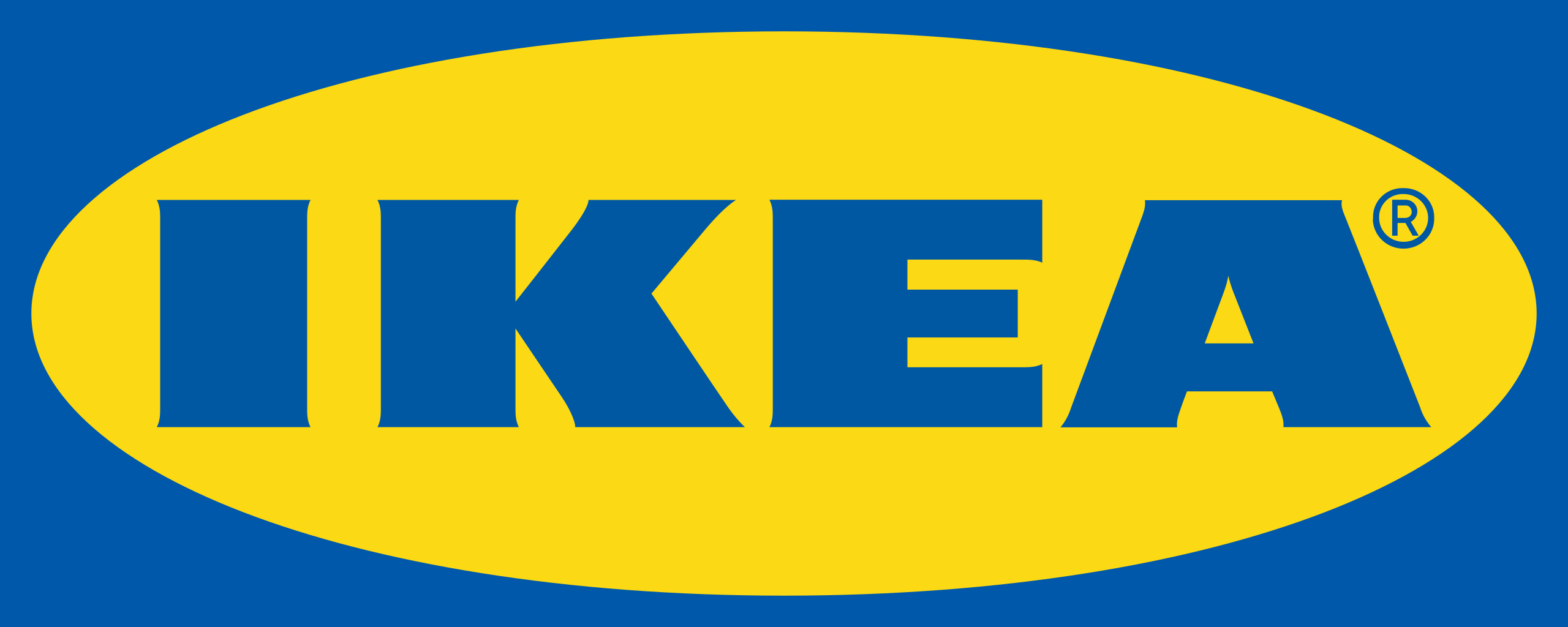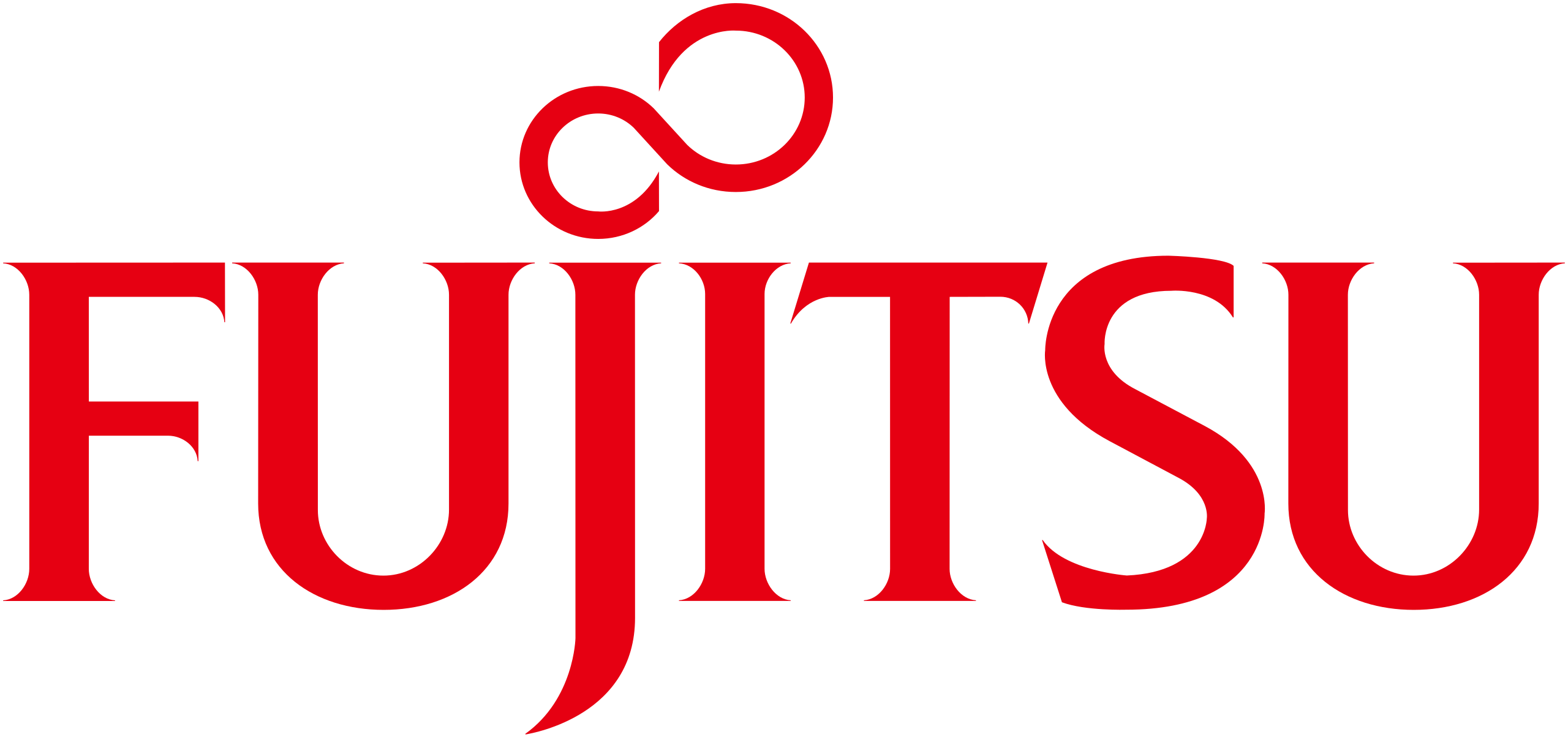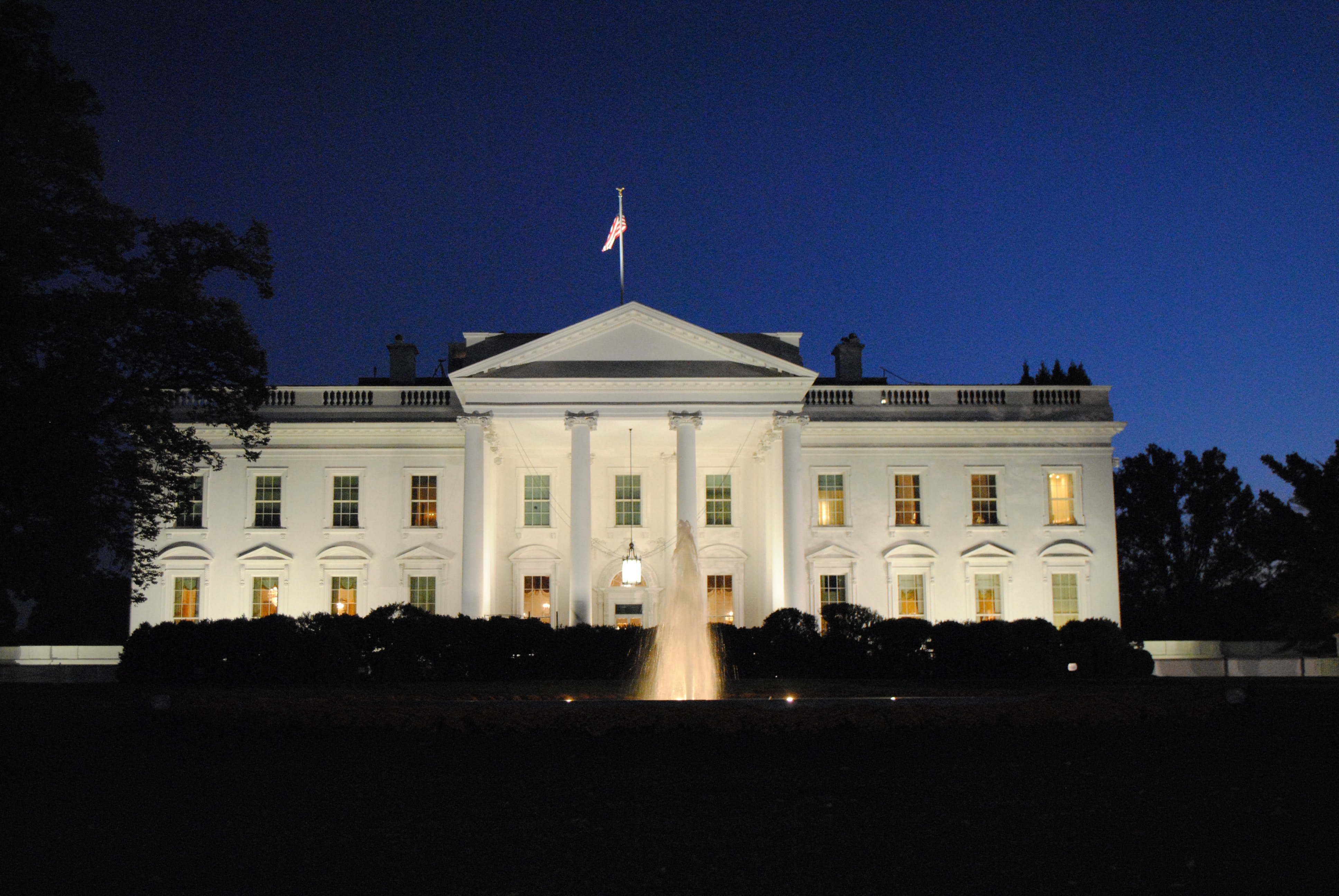Conformidad sin fricción
Garantice la fiabilidad de sus sistemas de IA. Cumpla los mandatos normativos. Protéjase frente a futuros riesgos legales.

Nuestros socios de desarrollo



.png)

A Trustworthy-First Approach to AI Systems

Streamline Governance
No more guesswork. Manage AI oversight and compliance from one platform to stay efficient, reduce risk, and focus on what matters.

Reduce Costs
Spend less, scale better. Automate audits, risk checks, and reporting while controlling spend with flexible, pay-as-you-go pricing.

Stay Ahead
Navigate change with confidence. Get real-time guidance as laws and AI regulations evolve to stay compliant and ahead of the competition.

AI Compliance is more than just meeting legal requirements
Too often, compliance is viewed as a costly, time-consuming burden.
We’re here to change that. With our easy-to-use tool, expert guidance, and practical training, oxethica turns compliance into your competitive advantage.
An AI Governance Platform for
Frictionless Compliance

Effortless AI Inventory
Get instant visibility into all your AI systems. One place to monitor, manage, and scale governance across your organisation.

Streamlined Compliance
Cut through complexity with smart, step-by-step questionnaires. Built to align with standards and reduce manual effort.

Focused Risk Insights
Zoom in on individual AI systems to understand and manage their unique risk profiles effectively and responsibly.

Action-Ready Documentation
Model cards deliver clear, structured outputs to support decisions for your organisation - and ready to send as a PDF.
Preguntas frecuentes sobre la gobernanza de la IA
What are AI Systems?
Artificial Intelligence (AI) systems are sophisticated computer programs designed to mimic human intelligence and decision-making processes. They function by synthetising patterns in large datasets to generate predictions, recommendations, and content. AI systems can learn from data and improve their performance over time. Examples include large language models, foundation models, and various machine learning models.
While the ultimate goal for some researchers is to develop Artificial General Intelligence (AGI) – software with human-like intelligence across a wide range of cognitive functions – most current AI systems are considered narrow AI. These specialized systems can operate with varying degrees of independence, from fully automated processes to providing suggestions for human review. These systems excel in specific domains but lack the versatility of human intelligence. Nevertheless, they have proven helpful in diverse fields such as natural language processing, computer vision, robotics, and data analysis.
What is AI governance?
AI governance refers to the check and balances designed to guide the responsible development, deployment, and use of AI systems. It comprises ethical guidelines, legal regulations, AI audits and best practices aimed at ensuring AI systems align with ethical values and social norms. Effective AI governance addresses key areas such as transparency, accountability, oversight, fairness, privacy and safety. By fostering responsible practices, AI governance seeks to safeguard against potential risks and dangers of AI such as algorithmic bias, discrimination, and unintended consequences, ultimately building public trust and confidence in AI systems.
Why does AI governance matter?
AI governance matters for both society and organisations. At the societal level, it plays a critical role in ensuring that AI systems are developed and used in a manner that are trustworthy – meaning they are legally compliant, technically robust, and adhere to ethical norms and values that society holds. For organisations, effective AI governance is a safeguard against numerous risks and dangers. Without proper governance, organisations risk perpetuating algorithmic biases, violating privacy and intellectual property rights, or make decisions that lack transparency or accountability. Such missteps can result in significant financial losses and severe reputational damage. Implementing effective AI governance helps mitigate these risks by setting standards and guidelines throughout the AI lifecycle – from development and deployment to operation and retirement. It promotes responsible innovation, ensuring AI systems are harnessed to their full potential while minimising their risks and dangers.
How is AI governance different from data governance?
AI governance and data governance are interrelated but distinct concepts Data is a fundamental component of AI: AI systems are trained on large quantities of data to make predictions and generate new content. Data governance focuses specifically on managing the availability, usability, integrity, and security of such data within an organization. Sound data governance thus is a critical foundation for effective AI governance; without good quality and representative data there cannot be a good AI system. AI governance builds upon data governance principles but extends further to address the unique challenges and opportunities presented by artificial intelligence technologies.
How does oxethica ensure AI compliance?
oxethica ensures AI compliance through a robust and comprehensive approach that integrates cutting-edge research with adherence to regulatory standards. We align our practices with the EU Artificial Intelligence Act, building on the continuous improvement of our Conformity Assessment Procedure for AI Systems (capAI) to stay updated with regulatory changes. Our AI Governance Platform provides a comprehensive set of tools for managing AI systems transparently and effectively. We also consider compliance mandates with closely related and sectoral regulations such as GDPR and the Product Safety Directive.
In addition to legal compliance, we provide a procedure for AI auditing, including rigorous testing and validation to ensure the AI outputs are robust. Additionally, we assess AI systems against your firm's ethical norms and values to ensure they are ethically sound. By integrating these practices, oxethica supports organizations in building trustworthy AI systems and achieving efficient regulatory compliance with the most stringent AI regulations.
Is oxethica suitable for organizations of all sizes and industries?
Yes, oxethica is suitable for all types of organisations. Our solutions are designed to be versatile and scalable, catering to diverse industries and firm sizes, from small startups to large enterprises. We provide customizable AI governance and compliance services that can be tailored to meet the specific needs and regulatory requirements of various sectors.
Read more on AI Regulation

Herramientas automatizadas de decisión laboral según la Regla de Nueva York


